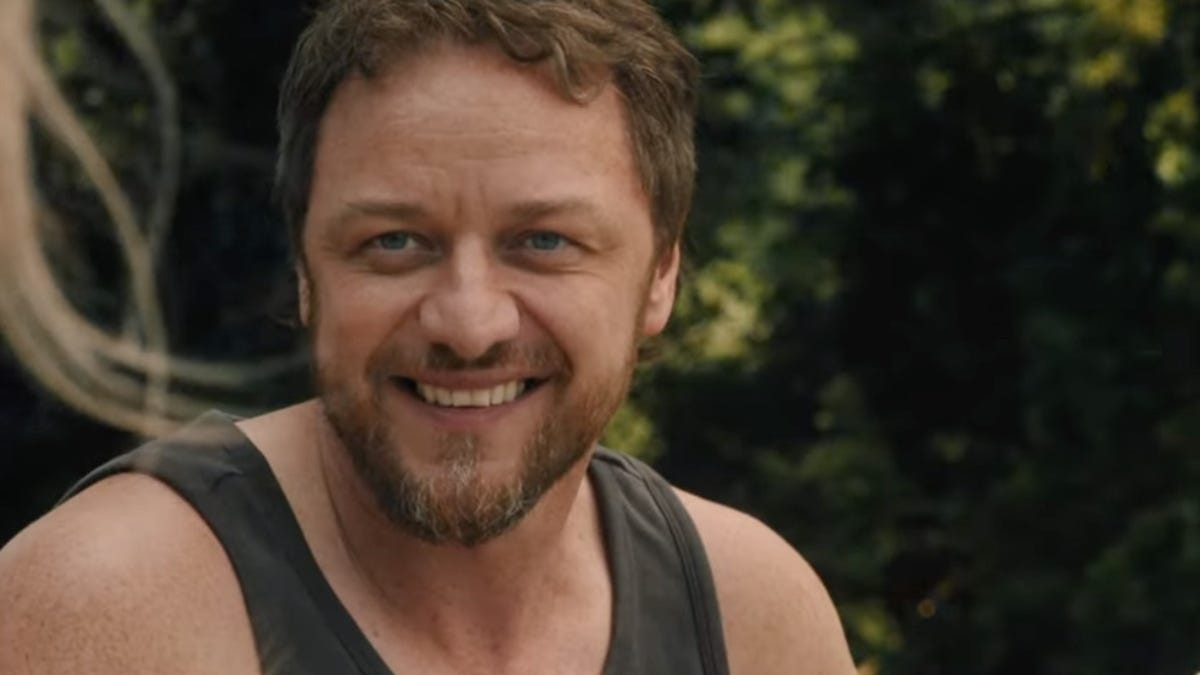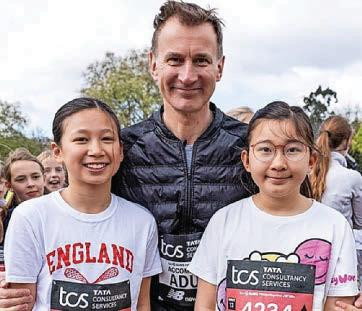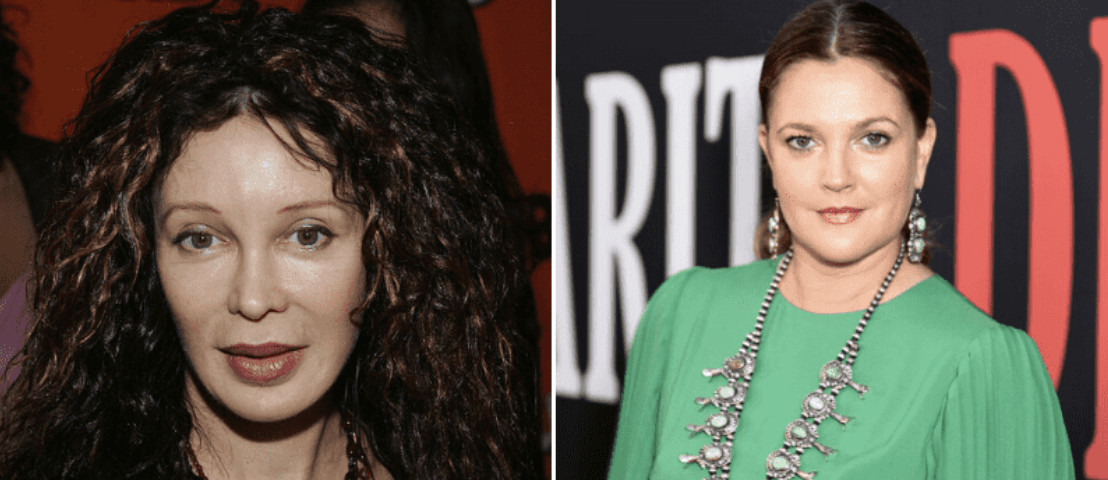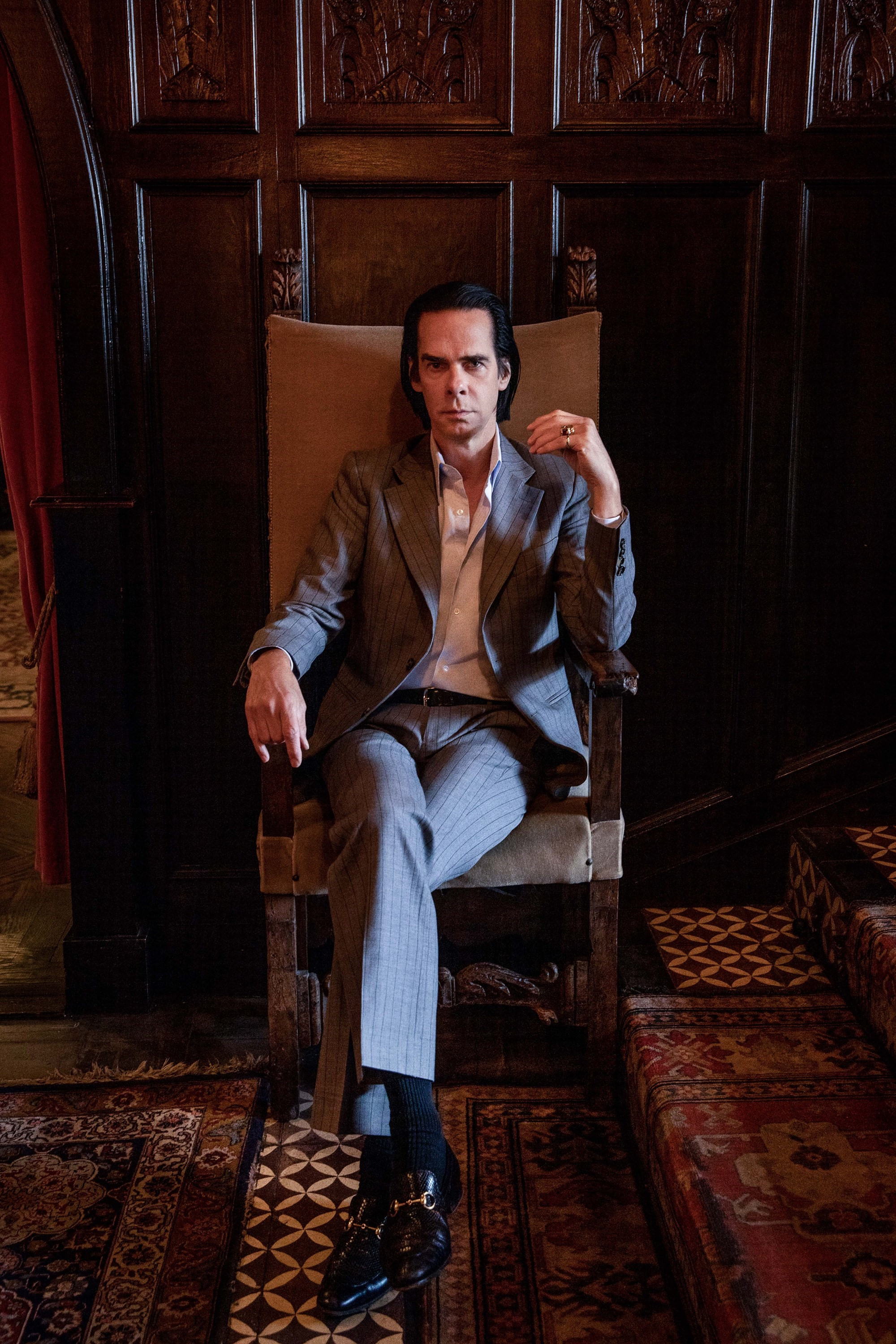Tolstoy famously suggested in barnstorming infidelity classic Anna Karenina that all happy families are alike, while the unhappy ones are unhappy in their own way – but here comes Speak No Evil to test the theory. Scoot McNairy and Mackenzie Davis play the Daltons, Ben and Louise, an upmarket American couple living in London; they are holidaying in Italy with their sweet but highly strung daughter Agnes (Alix West Lefler) while trying to work out some common or garden relationship issues.
During their vacation, they are intrigued and charmed by Paddy (James McAvoy) and Ciara (Aisling Franciosi), a more carefree, devil-may-care pair, who seem enviably capable when it comes to the fine art of seizing the day and enjoying life’s lustier side. That is despite handling the challenges of having a melancholy young son with a disability affecting his speech (an excellent and affecting turn from Dan Hough). We sense that this can’t be going anywhere good, but for the Daltons the spontaneous invitation to have a holiday at Paddy and Ciara’s West Country pile is humming with the promise of wholesome country living and a red-blooded, full-bodied way of life that they can’t seem to tap into by themselves.
The thing is: they don’t know they’re in a horror movie. In fact, they seem to think they are in a middlebrow European art film where the worst that can happen to you is some complicated emotional fallout off the back of some ill-advised wife-swapping. This is a new version of a Danish film from 2022, and admirers of the original could warn them that in fact they are stumbling into one of the nastier horror conceits of recent times – though being an American remake, the film retains the shocking central concept while dialling down the nihilism a couple of notches and throwing in a little more overt social comment for good measure.
McAvoy is the most compelling reason to see this one. The original may be darker, but it didn’t have McAvoy. He’s able to project the kind of careless bonhomie that initially seems to indicate fundamental decency lying beneath the edgy jokes – but by the time Ben and Louise start to realize that he is also missing a few fundamental components of humanity they are in too deep. In fact McAvoy’s performance is a neat nod to everything you’ve ever heard about the geniality and easy charm of Ted Bundy and his ilk; it’s true that manners don’t cost anything, but they also guarantee nothing.
McAvoy’s previous collaborations with Blumhouse on M. Night Shyamalan’s Split (2016) and Glass (2019) led to significant commercial success, dollar for dollar, and the Scottish actor’s performance as the DID-suffering Kevin Wendell Crumb has since put him in the ongoing conversation regarding overlooked genre-based performances that deserved genuine awards consideration. (You’ll often hear Lupita Nyong’o/Us, Toni Collette/Hereditary and Mia Goth/Pearl in the same sentence.)
McAvoy delivers yet another knockout performance in Speak No Evil, and it isn’t that far removed from his work in Shyamalan’s Eastrail 177 trilogy. Paddy doesn’t technically have split personalities, but like Crumb and his 24 distinct “alters,” Paddy can turn on a dime. One minute, he’s the most charming and affable guy that the easily impressionable Ben has ever met, but then the next minute, he’s an abusive father and cold-blooded sadist.
Overall, McAvoy isn’t precious about not repeating himself.
“I don’t mind retreading over old territory,” McAvoy tells The Hollywood Reporter. “To be honest with you, I’d say the majority of actors end up playing the same kind of person their entire career, and a lot of those actors are incredible performers, but they don’t really get to deviate from that tone or that quality that they have. If I have to play the same character a few times in a row, or many times in a row, to tell good stories that are different, then I don’t mind that at all.”
In Tafdrup’s Danish film, the ending is so singularly bleak that the number-one question surrounding Watkins’ remake was whether he’d follow suit or not. Ultimately, the writer-director took things in a more hopeful direction, something McAvoy agrees with a great deal.
“For the audience to watch me and kind of enjoy me as this objectionable character with the worst kind of chauvinistic, un-PC, medieval views, then the movie has to judge Paddy,” McAvoy says. “The movie can’t validate Paddy by the end, otherwise, you’re validating those views, as well, I think. So, anyway, I think the movie had to end in a different way, but to be honest with you, I hadn’t seen the original movie until I finished our movie, so it was never in my mind.”
Speak No Evil is actually the second time McAvoy has appeared on the big screen in the last six weeks. Most people expected Deadpool & Wolverine to be the title characters’ hello to the MCU, but it was mostly a goodbye to 20th Century Fox’s Marvel era, as underscored in the closing credits when McAvoy and his fellow X-Men appeared in a sentimental highlight reel. He was tipped off to the tribute when Marvel’s legal department needed his John Hancock ahead of time.
McAvoy is also mighty impressed by the striking resemblance of Emma Corrin’s Cassandra Nova, who is the sister of his Charles Xavier character in Ryan Reynolds and Hugh Jackman’s team-up.
“I thought so, too!” McAvoy says in response to THR’s comment about Corrin’s “uncanny” likeness. “I’ve just seen the trailers that they’re in, so I didn’t know if that was just my ego, going, ‘Oh yes, we share a certain something.’ But, definitely, yeah. In fact, when I’ve seen AI versions of myself [as Charles Xavier], [Emma Corrin’s character] is what I ended up looking like.”
Below, during a conversation with THR that took place on July 29, McAvoy also explains why he put on more muscle for Speak No Evil than he did for his superhuman character in Split and Glass.
Between Split and Glass, you and Jason Blum have had a very successful collaboration thus far. Was the idea here to keep a good thing going?
Yeah, definitely. I mean, the script and the potential that the character holds for me to do something with it will always define whether I want to do the job or not, but whenever Jason gets in touch, I’m excited. What he does at Blumhouse is consistently bring something that is entertaining and populist. It’s funny or horrific, sometimes funny and horrific, and yet it has something to say about society. It has something underpinning it that speaks to social commentary, and to be able to do that so consistently and with such success, there’s not a lot of companies managing to pull that particular thing off. So whenever he gets in touch, I’m always really excited.
You screened Speak No Evil at San Diego Comic-Con, and SDCC is what led to your Blumhouse partnership in the first place. Did you find yourself reminiscing about that dramatic turn of events in 2015?
Yeah, we ended up having lunch in a room where I remember a lot of pugilistic behavior going on between the [X-Men: Apocalypse] cast, so there was a lot of reminiscing. I’ve had a lot of really fun times in San Diego. I’ve also had one of the longest days of my life in San Diego where I was awake for 48 hours solid with no partying whatsoever. Jet lag was just absolutely killing me, and I was almost delirious doing a press junket one day because of it. But ‘ve had some good times there. It’s been good to me.
Speaking of that cast, James Watkins’ breakout film, Eden Lake, co-starred one of the guys that you used to work with a lot. Did you reach out to Michael Fassbender to get the word on Watkins as a director?
Do you know what? I don’t think I did. Honestly, for me, it’s script. When I get a script that I’m excited by and a character that I’m excited by, and who’s got a lot of potential for me to do the kind of jobs that I like to do, then that’s it, really. That is it. The director would have to be an absolute asshole or a failure for me to go, “No, I don’t want to be a part of this.” James met me at my house, and he was clearly not an asshole. He was really intelligent, and he was clearly up for collaborating and digging into me as a person and as an actor for my ideas and what I could bring to Paddy beyond what was on the page. So he was just excited, and that’s a big thing. You want to have an energetic director who’s not just operating on fear, who isn’t just operating on, “Well, what else am I going to do in my life?” When you feel that they’re genuinely engaged and they really want to tell this particular story, you know you’re onto something, and he definitely had all that.
Besides being cunning and highly opinionated, Paddy is also rather physically imposing. Did you dust off your Kevin Wendell Crumb regimen for this movie?
(Laughs.) Do you know what? I was bigger for this than I’ve ever been, and that was basically because of luck. During the pandemic and all of that, I just decided to lift really heavy weights and eat a hell of a lot of food. So when the script came my way, I was already in that kind of shape and thought, “Oh, this could be really helpful for playing Paddy.” So I wasn’t actually conscious of it; it just worked out, timing-wise. I wanted to keep him soft for the early part of the film and not do any of that pumping-up stuff. So I ate a little too much food on purpose for the first little bit of the film, and then I made sure I leaned out by the end of the film. We filmed pretty much chronologically, which hardly ever happens. So, by the end of the film, I’d leaned out a little bit, and then I did all of that dumb stuff that actors do, like pumping up before a take to help him be more engaged physically and more physically imposing. Look, I’m 5’7’’. I’m hardly the most physically imposing guy, so I was looking for those little gains wherever I could get them to help make Paddy a threat.
Paddy is a sinister force, but if I had to be generous, he probably makes a couple good points about honesty and how we pat ourselves on the back for doing the bare minimum. Were you able to find any redeeming qualities?
As much as he’s narcissistic, sociopathic, abusive, manipulative, murderous, I think his most redeeming quality is that he has unlocked one of the secrets of life. He’s capable of great happiness, and he’s quite often really jolly. A lot of good people in the world don’t seem to have that capacity. They don’t seem to have found that ability to smile throughout their day, but he has found a way to be happy. I don’t condone his behavior because of it. I don’t forgive his behavior because of it, but it does make me want to figure him out. It does make me want to understand him: “What is it? What is your secret? How did you find it? How did you unlock it?” And that’s what’s going through Ben’s [McNairy] mind as this injured, limping beta male figure, who can’t look himself in the mirror and say that he is a good father, a good partner, a good professional, a good man. He’s instead looking at Paddy, going, “All right, maybe he’s dangerous, maybe he’s toxic, but he’s figured out how to smile through his day.” Not only that, Paddy has got the kind of love with his wife that Ben could only dream of having. He certainly doesn’t have that, so that makes me understand why Ben is attracted to Paddy even if Louise clearly isn’t.
The Danish film’s original ending is so brutal, and it’s probably something that should never be replicated, so I’m glad your version went its own way. But, if your film did in fact repeat that ending, do you think it would’ve affected your decision to sign on? Would you have wanted to carry that out on screen?
Yeah, I wouldn’t have minded as long as it made sense and was well written. The difference in our film is that everything that came before it wouldn’t lead to that ending. I wouldn’t believe that Ben and Louise would accept that. James was telling a slightly different story, and he was trying to tell something with more hope at the end, even though it’s still pretty brutal at the end. He wanted to have a discussion about social compliance, but he also wanted to tell a story about somebody like Paddy, who’s completely objectionable. And for the audience to watch me and kind of enjoy me as this objectionable character with the worst kind of chauvinistic, un-PC, medieval views, then the movie has to judge Paddy. The movie can’t validate Paddy by the end, otherwise, you’re validating those views, as well, I think. So, anyway, I think the movie had to end in a different way, but to be honest with you, I hadn’t seen the original movie until I finished our movie, so it was never in my mind.
Paddy and Ben’s screaming scene also has shades of Kevin Wendell Crumb, and since you’ve had to do plenty of that on-screen, do you recommend what’s known as primal scream therapy? Do you feel lighter aftwards?
Yeah, definitely, but you quite often have a very sore throat, as well. I said, “Let’s make sure we do that scene at the end of the day so that we don’t spend the rest of the day sounding like we’ve just been at a rave where we’ve been trying to talk to our friends for five hours.” (Laughs.) So, yeah, I think it is pretty handy, but I think cold shower therapy is even better. I think that’s the one for me.
Have you given any thought to how this movie might affect your future as a host or houseguest?
Yeah, I will never make friends on vacation ever again. (Laughs.) No, I go on vacation with my friends and family, usually. So I hope it doesn’t make people feel uncomfortable in my home, but I think I’m a pretty decent host.
Well, James, I wasn’t expecting to see you on the big screen twice in the same week. (This interview was conducted on July 29). Did Deadpool & Wolverine EP Simon Kinberg give you a heads-up since the two of you worked on your X-Men films together?
The legal team at Marvel gave me a heads-up because they had to ask me to sign contracts. So Kinberg actually never got in touch about that one, but it was fun. It was a nice little bit at the end, and it was nice to be part of it.
Emma Corrin’s resemblance, as Charles Xavier’s sister Cassandra Nova, was quite uncanny.
I thought so, too! I’ve just seen the trailers that they’re in, so I didn’t know if that was just my ego, going, “Oh yes, we share a certain something.” (McAvoy turned on his Charles Xavier voice.) But, definitely, yeah. In fact, when I’ve seen AI versions of myself [as Charles Xavier], [Emma Corrin’s character] is what I ended up looking like. (Laughs.)
In Split and Glass, you played at least 24 characters in each movie. When you wrapped both those jobs and went on to the next one [Atomic Blonde and It: Chapter Two, respectively], did one solitary character feel like a walk in the park after everything you’d just been through as Kevin Wendell Crumb?
Yes and no. It was slightly less heavy lifting. I was like, “Oh, this workload is easy.” But actually, the job of each character in Glass and Split was pretty easy. The hardest part of acting is working on something that isn’t well written, and each character was well written, so I could understand where they were all coming from. It was just the amount of characterization you had to do. There was a lot to do in a short space of time. But, yeah, when I got into the next one, I was like, “Oh wow.” I felt like I was in high school, but they let me just take English instead of English, math, science, Home Ec and all that stuff. I just had one subject to do for six months, and it was pretty nice, actually.
I’m probably not helping matters, but by playing so many characters in Split and Glass, did you ever worry that you were taking too many character choices off the board for later in your career?
No, and I don’t mind retreading over old territory anyway. I don’t go, “Alright, I’ve played this type of person and I can never do that again.” So I don’t mind. To be honest with you, I’d say the majority of actors end up playing the same kind of person their entire career, and a lot of those actors are incredible performers, but they don’t really get to deviate from that tone or that quality that they have. So I’ve been very lucky to have a lot of diversity and to have been able to express a lot of versatility in my career. But that’s not actually what it’s about; it’s about telling the story. If I have to play the same character a few times in a row, or many times in a row, to tell good stories that are different, then I don’t mind that at all.
You and Anya Taylor-Joy created a noticeable alchemy on screen, and I hope there’s a reunion in your future. Are you proud of what she’s gone on to do?
When people say they’re proud, I always feel like it sounds like there’s a little bit of ownership there. So I’m not proud in that way, but I’m proud that I’ve been able to work with her, because she’s a brilliant actress. I’m really, really happy for her, and she deserves everything that she gets. She works her socks off.
I always appreciated the way you portrayed anxiety in Wanted. Are you disappointed that a sequel was never able to gain momentum?
A couple of scripts came my way for sequels, but they weren’t strong enough, so that’s why they never happened. If there was a script that was absolutely banging, then, yeah, I’d be disappointed. But we made something that I’m really proud of. Timur [Bekmambetov] was really proud of it. The studio was really proud of it. Everybody was really excited by it, and it’s stood the test of time a little bit. It’s always on streamers, and people are always watching it. I still get so much love for it from young people who weren’t alive back then. So I’m proud of what we did, and I wouldn’t want to tarnish it by doing something that was not quite as strong. And, look, I’m too old to play Wesley now anyway. It’s a young person’s role now.
Lastly, you’re slated to make your directorial debut very soon. (California Schemin, which chronicles the wild true story of two Scottish rappers, is currently in pre-production.) What made this the right time to take that leap?
I don’t know why it became the right time, but it was the right piece of material for me. I’ve always wanted to tell stories about people from working class backgrounds who don’t have the opportunity that’s afforded to other people. They don’t have that kind of entitlement. However, even though I’ve barely played any Scottish characters in my entire career, all I got sent was gritty Scottish drama when I first said I wanted to direct. And I love those kinds of films, as well. I don’t need it to be anything other than this, but it was all the grit and the grime and the banal sadness of that environment. I’m from that environment, and my life wasn’t gritty and banal and depressing. So I’ve wanted to tell stories that are entertaining and aspirational. They’ve got humor and they are movies, not just gritty black-and-white films. So when California Schemin came my way, it was exactly that. It gave me the opportunity to tell those stories about people from backgrounds like mine, but also entertain and shock and surprise, while having so much aspirational hope in it, as well.















